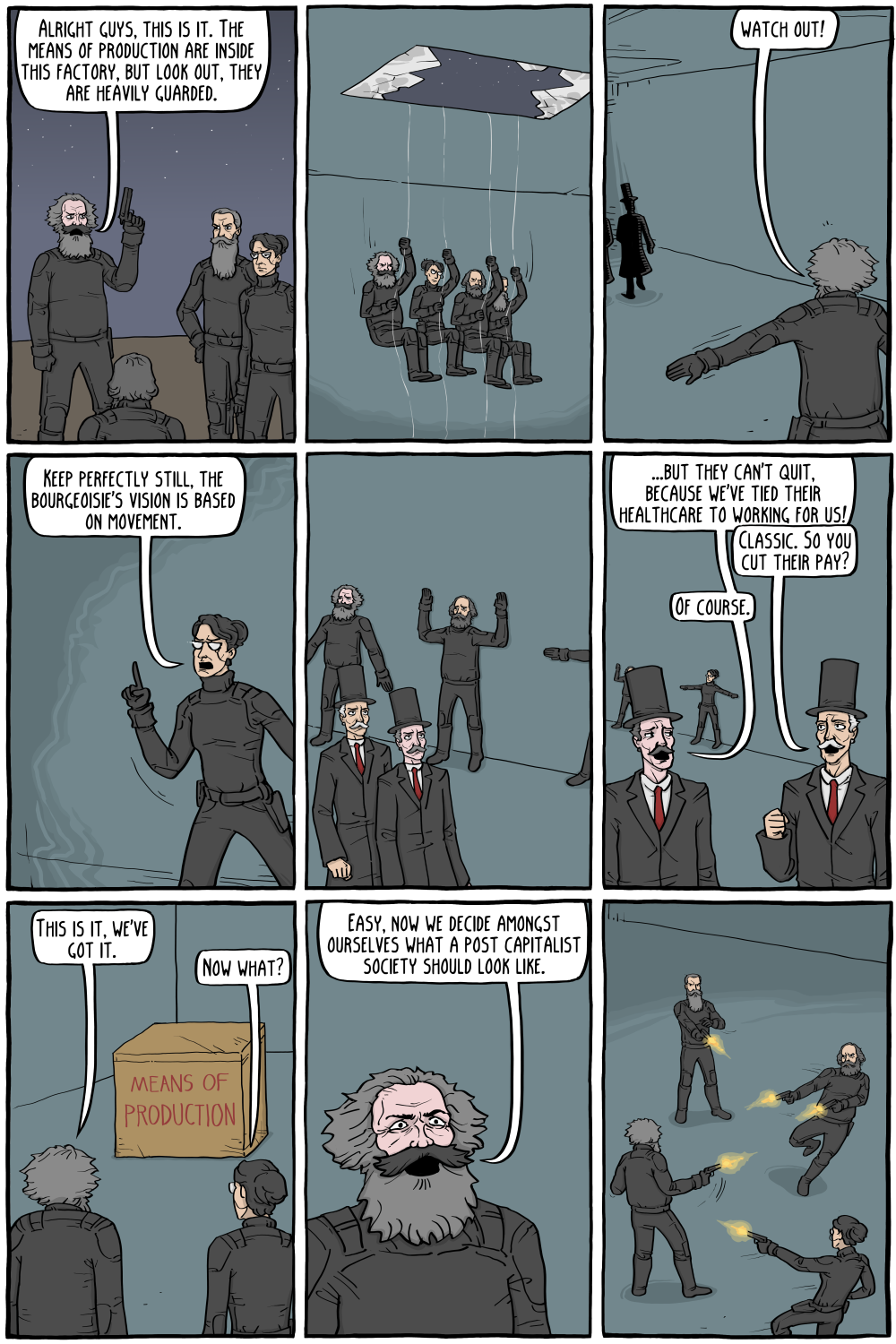this post was submitted on 03 Apr 2025
664 points (96.6% liked)
Comic Strips
15658 readers
1963 users here now
Comic Strips is a community for those who love comic stories.
The rules are simple:
- The post can be a single image, an image gallery, or a link to a specific comic hosted on another site (the author's website, for instance).
- The comic must be a complete story.
- If it is an external link, it must be to a specific story, not to the root of the site.
- You may post comics from others or your own.
- If you are posting a comic of your own, a maximum of one per week is allowed (I know, your comics are great, but this rule helps avoid spam).
- The comic can be in any language, but if it's not in English, OP must include an English translation in the post's 'body' field (note: you don't need to select a specific language when posting a comic).
- Politeness.
- Adult content is not allowed. This community aims to be fun for people of all ages.
Web of links
- !linuxmemes@lemmy.world: "I use Arch btw"
- !memes@lemmy.world: memes (you don't say!)
founded 2 years ago
MODERATORS
you are viewing a single comment's thread
view the rest of the comments
view the rest of the comments

That whole book is a wild read. It's about how and why to be involved in politics. Some of it is kind of a 1940s manual on how to operate a campaign, but a lot of it is talking about why it's important to be engaged and pay attention, and also stuff like this:
Heinlein has plenty of issues, but I feel like a lot of people overlook his positives.
He told us that the only good bug is a dead bug
Actually that's Paul Verhoeven and Edward Neumeier writing the movie Starship Troopers, which I maintain is a dumb movie with aspirations of being a smart movie, pretending to be a dumb movie.
Just as an example, in the scene where the guy asks why they're learning to throw knives when they have ICBMs, here's Heinlein's take:
...and in the movie the guy just gets a knife through the hand and Zim says "Try to push a button now!" They're not exactly equivalent. This (admittedly quite long) series discusses the issues with Verhoeven's interpretation of Heinlein, but the short of it is that Verhoeven and Heinlein were such fundamentally different people that the very idea of Verhoeven adaptating Heinlein is absurd.
Verhoeven never read that scene in full because he didn't read the book at all.